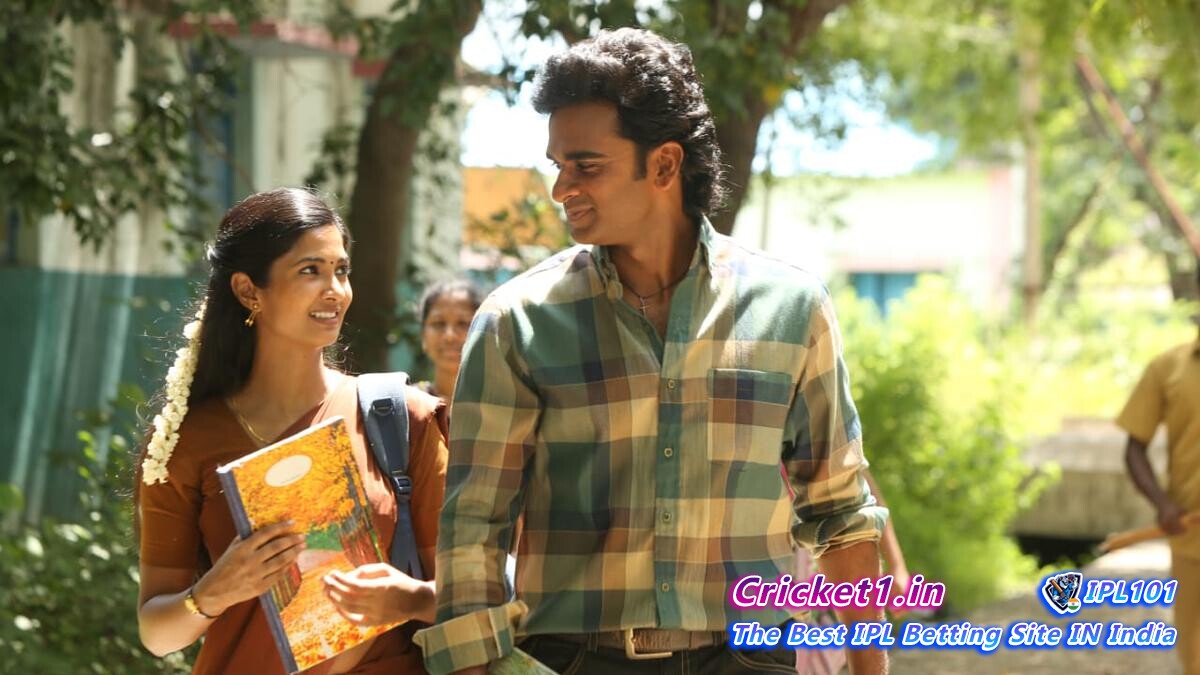
In a scene that’s etched in memory from the recently released “Blue Star,” a light-hearted exchange—a teasing moment—between the two leads, Rajesh (played by Shanthnu) and Ranjith (portrayed by Ashok Selvan) belies the deeper thread that weaves this compelling narrative. For sports dramas have long faced the challenge of breaking free from the iron grip of predictability and the often-traveled road of underdog victory. Yet, through the vision of Pa Ranjith and the pen of writer Tamizh Prabha, as recently evidenced in the transformative “Sarpatta Parambarai,” sports serve as more than a game. It is a lens through which social structures are dissected, a battleground for ideologies, and a potential balm for the wounds that divide.
Blue Star, a film brought to life by the creative union of Ranjith, Tamizh, and writer-director S Jayakumar, transcends the stereotypical sports film mold. It peers into the fissures of social hierarchy using cricket as both the microscope and the scalpel. Over a runtime that spans 160 minutes, the audience is transported into the imperfect reality of two young men hailing from opposing communities. Each moment of mirth carries undertones of the narrative’s gravity, never allowing one to forget the world these protagonists inhabit—a world where their affections for cricket is both a shared passion and a divisive tool.
The narrative unfolds in the town of Arakkonam. The titular Blue Star cricket team comprises a group of friends, among them Ranjith, his brother Sam, and their companions—referred to as the “ooru pasanga” due to their underprivileged backgrounds. Opposing them are the Alpha Boys, led by the affluent and brash Rajesh, the wealthy “colony pasanga.” A history of discord between their worlds ensures that their love for the game is marred by separation and bitterness.
Nevertheless, Rajesh’s journey takes a turn through self-inflicted circumstances, leading him to introspect the societal malaise and caste prejudices that have been ingrained in his psyche. The plot deepens as both teams face an external force, drawing the two leads into a pivotal confrontation.
Blue Star does not merely take a swing at the cricket aspect; it is, insofar, a grand slam. Yet it eschews kitsch and ostentation in favor of character depth and ideological undercurrents. The screenplay is dense, allotting space for secondary characters to shine—be it Immanuel, a former Blue Star player turned moral compass, the resilient Anandhi, played deftly by Keerthi Pandian, who emerges not as a mere love interest but an advocate for women in sports, or the cast’s scene-stealing cricketer, Bullet Babu.
Ashok Selvan and Shanthnu Bhagyaraj shoulder the film with commendable performances, iterating the vulnerability and ego struggles of their respective characters. In one pivotal scene, through the words of Bhagavathy Perumal’s Immanuel, the essence of sports as a uniting force is eloquently encapsulated—a reflection that extends beyond the cricket field and into personal lives.
Beyond the realms of cricket, the underlying currents of caste and societal status paint a broader canvas of human struggle against oppression and the fight for equality. Through the relationship between Ranjith and Anandhi, the lens widens and the narrative peels back layers of systemic injustice and the ripple effects on those endeavoring to challenge it.
The accomplishments of Blue Star off the pitch match its cinematic triumphs. It’s a testament to Pa Ranjith’s determination to usher in a new dawn of cinema that valiantly promotes equality, peace, and universal love. Audiences seeking a more profound and realistic sports drama are sure to find that “Blue Star” delivers, offering a narrative pitch-perfect in its execution and resonant in its messaging.
As it plays in theaters, “Blue Star” is not merely another entry into the well-trodden genre of sports dramas—it is a formidable narrative of victory, one that exists in the hearts and minds of its audience, far outlasting the echoes of the cheering crowds.

